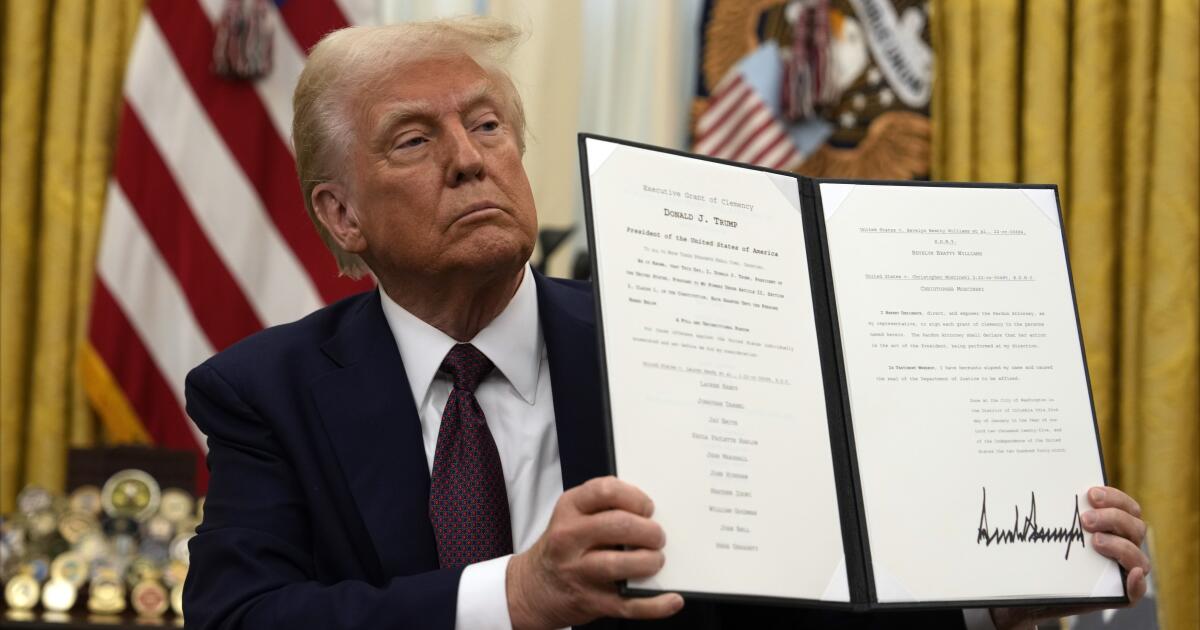WASHINGTON — A divided Supreme Court said Thursday the Trump administration may cancel hundreds of health research grants that involve diversity, equity and inclusion or gender identity.
The justices granted an emergency appeal from President Trump’s lawyers and set aside a Boston’s judge order that blocked the canceling of $783 million in research grants.
The justices split 5-4. Chief Justice John G. Roberts joined the court’s three liberals in dissent and said the district judge had not overstepped his authority.
The court’s conservative majority has repeatedly sided with the administration and against federal judges in disputes over spending and staffing at federal agencies.
In the latest case, the majority agreed that Trump and his appointees may decide on how to spend health research funds allocated by Congress.
Upon taking office in January, Trump issued an executive order “ending radical and wasteful government DEI programs and preferencing.”
A few weeks later, the acting director of the National Institutes of Health said the agency would no longer fund “low-value and off-mission research programs, including but not limited to studies based on diversity, equity, and inclusion (DEI) and gender identity.”
More than 1,700 grants were canceled.
Trump’s lawyers told the court NIH had terminated grants to study “Buddhism and HIV stigma in Thailand”; “intersectional, multilevel and multidimensional structural racism for English- and Spanish-speaking populations”; and “anti-racist healing in nature to protect telomeres of transitional age BIPOC [Black, Indigenous, and People of Color] for health equity.”
California Atty. Gen. Rob Bonta and his counterparts from 15 Democratic-led states had sued to halt what they called an “unprecedented disruption to ongoing research.” They were joined by groups of researchers and public health advocates.
The state attorneys said their public universities were using grant money for “projects investigating heart disease, HIV/AIDS, Alzheimer’s disease, alcohol and substance abuse, mental-health issues, and countless other health conditions.”
They said NIH had terminated a grant for a University of California study examining how inflammation, insulin resistance, and physical activity affect Alzheimer’s disease in Black women, a group with higher rates and a more aggressive profile of the disease.
Also terminated they said was a University of Hawaiʻi study that aimed to identify genetic and biological risk factors for colorectal cancer among Native Hawaiians, a population with increased incidence and mortality rates of that disease.
In June, the Democratic state attorneys won a ruling from U.S. District Judge William G. Young, a Reagan appointee. He said the sudden halt to research grants violated a federal procedural law because it was “arbitrary” and poorly explained.
He said Trump had required agencies “to focus on eradicating anything that it labels as Diversity, Equity and Inclusion (“DEI”), an undefined enemy.” He said he had tried and failed to get a clear definition of DEI and what it entailed.
When the 1st Circuit Court refused to lift the judge’s order, Trump’s Solicitor Gen. D. John Sauer appealed to the Supreme Court in late July.
He noted the justices in April had set aside a similar decision from a Boston-based judge who blocked the new administration’s canceling of education grants.
The solicitor general argued that Trump’s order rescinded an executive order from President Biden in 2021 that mandated “an ambitious whole-of-government equity agenda” and instructed federal agencies to “allocate resources to address the historic failure to invest sufficiently, justly, and equally in underserved communities.”
He said the new administration decided these DEI-related grants “do nothing to expand our knowledge of living systems, provide low returns on investment, and ultimately do not enhance health, lengthen life, or reduce illness.”
